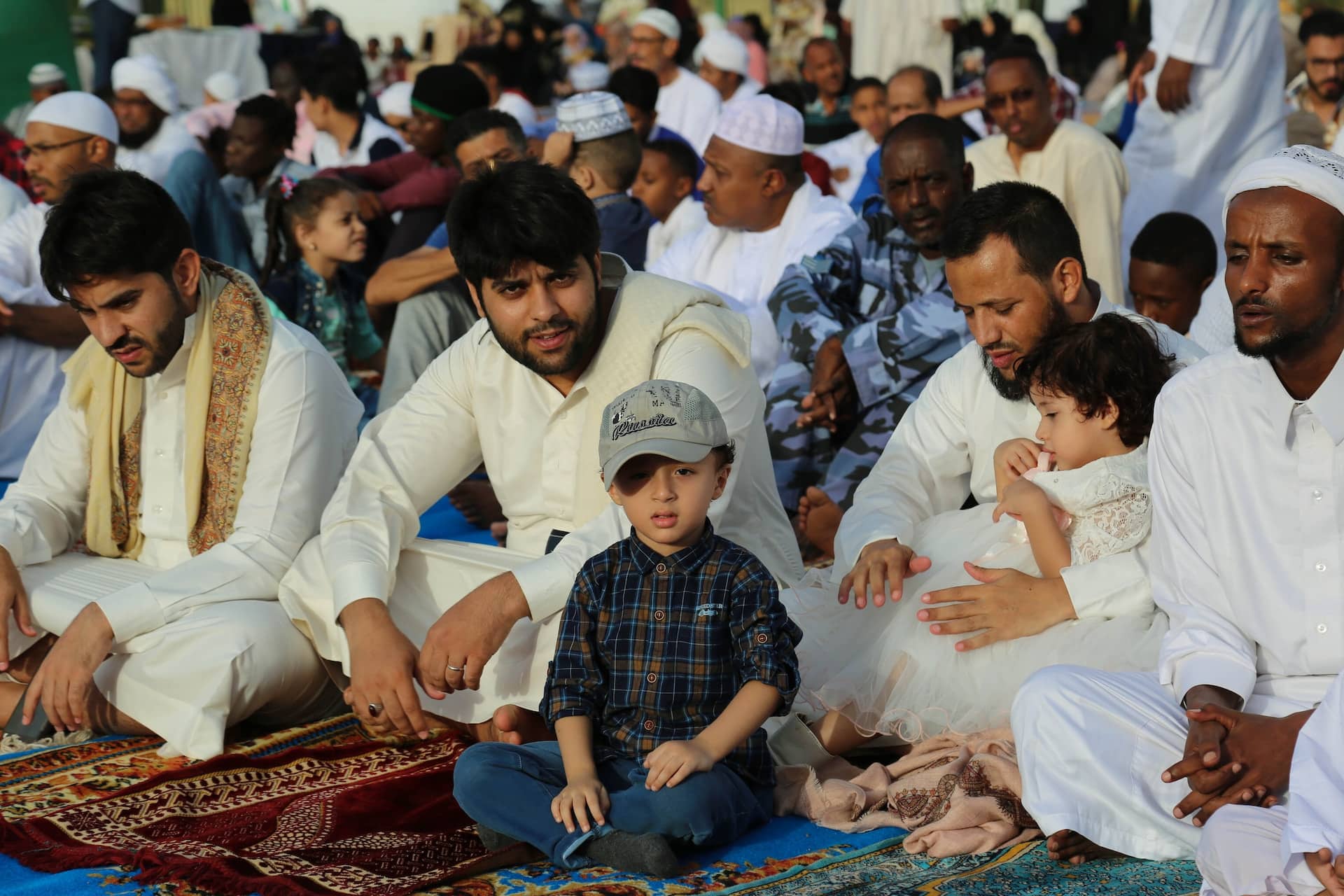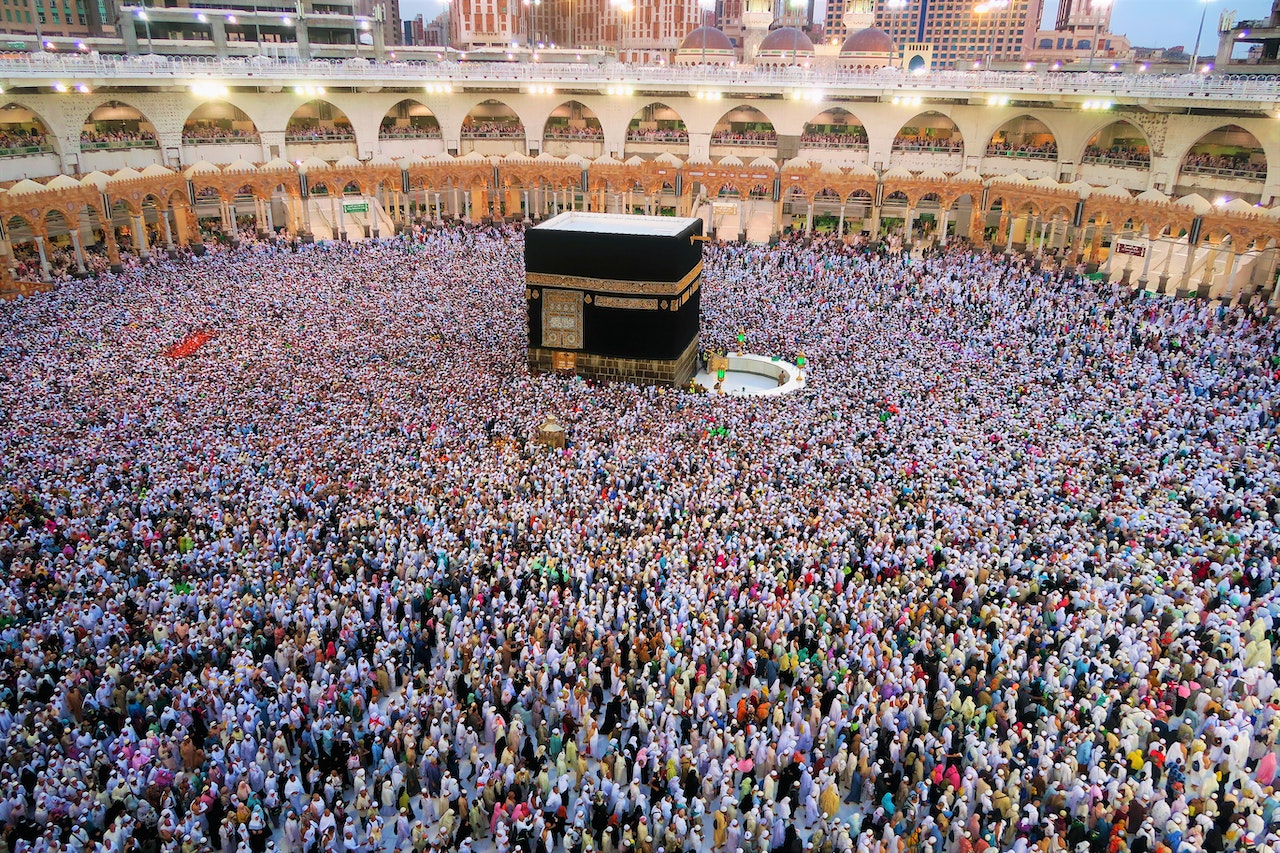Umrah, a sacred pilgrimage in Islam, offers a journey of reflection and devotion in Makkah. This section provides a concise introduction, capturing its essence, rituals, and significance, guiding both novices and those familiar with its profound traditions. Dive in to grasp the heart of this spiritual endeavor.
Umrah is a lesser pilgrimage in Islam, compared to Hajj. It’s voluntary, taking place in Mecca, Saudi Arabia, and can be performed throughout the year, unlike the annual Hajj.
Anyone who proceeds with this spiritual journey purifies their body, heart, soul and mind from their past sins.
Depending on ability and capacity in the masjid, Umrah can be performed in as little as 45 minutes upto 3 hours.
Umrah holds significant spiritual value. The Prophet Muhammad, peace be upon him highlighted its importance, stating that it serves as an expiation for sins committed between consecutive Umrahs, enhancing one’s piety and spiritual growth.
Reward for performing Umrah in Ramadan:
1. The Prophet blessings and peace be upon him said: “Performance of Umrah in Ramadan is equivalent to Hajj”, or he said: “Equal to performance of Hajj with me”
2. This virtue extends to all the days and nights of Ramadan
3. The pilgrim must perform his Umrah at the time allotted to him as shown by the reservations in the official Umrah applications
A Muslim may perform Umrah at any time. However, there are important criteria for determining the appropriate time for Umrah for each person:
Ramadan, the holy month of fasting, amplifies the rewards of Umrah. Undertaking it during this time is believed to grant blessings equivalent to performing Hajj alongside the Prophet Muhammad, emphasizing its special significance.
Reward for performing Umrah in Ramadan:
1. The Prophet blessings and peace be upon him said: “Performance of Umrah in Ramadan is equivalent to Hajj”, or he said: “Equal to performance of Hajj with me”
2. This virtue extends to all the days and nights of Ramadan
3. The pilgrim must perform his Umrah at the time allotted to him as shown by the reservations in the official Umrah applications
Navigate Umrah Islamic terminologies with ease. Our glossary offers clear definitions of key terms, aiding both newcomers and seasoned learners in deepening their understanding of Islamic teachings.
Ihram is a sacred state that Muslim pilgrims enter and stay in while performing the divine rituals of Umrah. Ihram must be worn by every individual heading to Makkah for either of the lesser or greater pilgrimage. A pilgrim enters the state by performing some cleansing acts and wearing a dress.
Tawaf is the act of circumambulating the Holy Kaaba in an anti-clockwise direction. It involves walking around the Kaaba seven times as part of the rituals of Umrah. When performing Tawaf, pilgrims recite Takbir and various other supplications based on the Sunnah of the Prophet’s.
The Talbiyah is a devotional prayer recited by Muslim pilgrims with the belief that they intend to perform Umrah only for the glory of Allah (SWT). It is recited at least a hundred times throughout the pilgrimage.
Sa’ee is an Islamic ritual which honours the struggle of Prophet Ibrahim (AS)’s wife Hajar (AS); it means to run or walk between Safa and Marwa while performing Umrah and is the fourth compulsory rite of Hajj or Umrah, performed after completing Tawaf.
Halq is when one shaves their entire head after the completion of Umrah and it applies exclusively to men. A person won’t be able to leave the state of Ihram until it is performed. It is recommended that you start shaving hair from the right side while facing the Holy Kaaba.
Enter your email address to receive our essentials 2024 Umrah Packing Guide
Embarking on Umrah requires spiritual and logistical preparation. This section offers insights and guidelines to ensure you're mentally and physically ready for this sacred journey.



Umrah is a spiritual trip that Muslims take. In Umrah, they follow certain steps. They enter a stage called Ihram, go around a structure known as the Kabah in Makkah, travel between two spots named Safa and Marwah, and then have their hair cut or shortened.
In summary, Umrah is a spiritual journey that can result in numerous blessings for Muslims. It offers opportunities for doing good, seeking forgiveness, and improving one’s life.
‘Haram’ or Sanctuary refers to a unique area where certain activities, usually permitted elsewhere, are disallowed out of profound respect and reverence for God, who set these rules. God said that those who respect these sanctified sites would be rewarded. God selected this land as sacred, with specific rules differing from other locations. It possesses exclusive merits not found anywhere else, and its sanctity dates back to the dawn of the universe.
God declared this land a Sanctuary on the day the universe was created, a status that will endure till the end of time. As the Prophet said: “From the day He created the heavens and the earth, God declared this town a sanctuary. It remains a sanctuary by God’s decree till the end of time.”
You are now in a place that was distinguished and sanctified by God before the creation of humans. It’s the location where God instructed Ibrahim to lay the foundations of the House (Kabah), even before a single soul lived in Makkah. It was chosen to be the Qiblah and guidance for all. In this place, rewards for good deeds are amplified, and sins hold more significance than elsewhere.
God entrusted His noblest humans, Ibrahim and Ismail, and then Muhammad, with the responsibility of purifying, building, and taking care of the Kabah.
Carrying out the Umrah, a holy pilgrimage, is considered one of the noblest deeds in the eyes of Allah. The Prophet Muhammad expressed: “One Umrah serves as atonement for the sins committed between it and the previous one. It’s also permissible to do it more than once in a year.”
Some visitors to Makkah aim to do Umrah multiple times, either for themselves or on behalf of relatives. They may do this because they’re uncertain about returning to Makkah. This is allowed as long as it doesn’t disrupt other pilgrims or breach the rules and regulations of the official Umrah process.
To do repeat Umrah, Pilgrims need to travel to the closest place outside the Haram, such as Aishah’s mosque in Al Taneem, Makkah. From there, they can enter the state of Ihram as normal and begin the next Umrah.
A Muslim may perform Umrah at any time. However, there are important criteria for determining the appropriate time for Umrah for each person:
It is better for the pilgrim to choose the less crowded times so that they can perform the rituals of Umrah, go near the Haram, and pray there with ease
There is a special merit for Umrah in the month of Ramadan. The Prophet’s blessings and peace be upon him said: “Performance of Umrah during Ramadan is equal to Hajj”, or he said: “Equal to the performance of Hajj with me”. It is better for the pilgrim to choose the less crowded times so that they can perform the rituals of Umrah, go near the Haram, and pray there with ease
Pilgrims must perform Umrah at the time allotted to them, according to their reservations on the official Umrah apps.
Umrah is not allowed during the Hajj season, for those who do not intend to combine it with Hajj, to keep the Sacred sites available for pilgrims, because they are more deserving of those sites than others at that time.
Those entering the Kingdom on any type of visa can go to Makkah to perform Umrah after making a reservation through the Nusuk app.
Umrah is always a meaningful deed. It’s known to cleanse sins, as highlighted by the Prophet Muhammad. Its significance is even more pronounced during the holy month of Ramadan.
The Prophet Muhammad stated: “Performing Umrah in Ramadan is equivalent to performing Hajj,” or he said, “It’s as if you’ve done Hajj with me.” This merit applies to all the days and nights of Ramadan.
Pilgrims should adhere to their allotted schedule for Umrah, as indicated in their official Umrah reservations.
The Nusuk App is responsible for managing Umrah bookings and visitation to the Rawdah for Umrah.
After downloading the app, you must first create an account. To create an account, follow these steps:
Once you have created an account, the next thing you should do is book your Umrah permit:
You will be able to view your Umrah details afterwards. The details include the reservation and permit number, a QR Code of the permit and the date and time slot. It is advised that visitors choose timings with fewer crowds, which are indicated by green colours on the calendar.
Navigating travel for Umrah can be daunting. Here, we simplify the process, providing essential tips and recommendations for a smooth pilgrimage journey.
If you come to Makkah to perform Umrah on your own or rented car:
Umrah pilgrims residing in adjacent countries are allowed to enter the Kingdom through land ports on their own or rented cars. They may also enter through land ports using means of transportation licensed to external agents only.
Residents and local citizens intending to do Hajj or Umrah can travel by public transport buses. They can also drive to Makkah after obtaining a permit to perform Umrah. However, small cars are banned from entering Makkah before the start of the Hajj season and on the last ten days of Ramadan unless they have an official entry permit.
At entrances to Makkah, there are 7 parking lots able to accommodate 50,000 cars of Umrah pilgrims.
You will be asked to park your car in a parking lot in the Holy Capital (Makkah). At these parking lots, buses transport Hajj and Umrah pilgrims directly to the Grand Mosque.